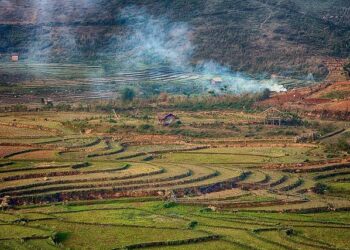Labour leader Keir Starmer has announced plans to establish migration “return hubs” during his visit to Albania, aiming to streamline the repatriation of migrants arriving in the UK. However, the proposal has been met with resistance from Albanian authorities, who have expressed concerns over the implications and feasibility of hosting such facilities. This development raises questions about the effectiveness and diplomatic challenges of the UK’s approach to managing irregular migration, as well as the broader implications for UK-Albania relations. What lies behind the conflicting positions, and what does this mean for future migration policy?
Starmer’s Migration Return Hubs Proposal Faces Diplomatic Pushback from Albania
Labour leader Keir Starmer’s proposal to establish migration “return hubs” in Albania as part of the UK’s tightening immigration strategy has met with firm diplomatic resistance. While Starmer argues that these centres would help manage asylum claims more effectively and curb illegal crossings, Albanian officials have expressed deep reservations. The government in Tirana is concerned about the potential stigma such hubs would bring to the country, fearing it could impact Albania’s international image and its aspirations to join the European Union. Moreover, there are questions about sovereignty and whether Albania would have sufficient control over operations within its borders.
Albania’s pushback highlights the complex geopolitics surrounding migration policy. Key concerns include:
- Economic Impact: Fear that hosting return hubs may deter investment and tourism.
- Human Rights: Uncertainty over the treatment and living conditions of migrants in such facilities.
- Political Ramifications: Potential backlash from domestic populations and EU partners.
- Legal Concerns: Questions over jurisdiction and international law compliance.
| Stakeholder | Position | Key Concern |
|---|---|---|
| UK Government | Proposed return hubs | Reduce irregular migration |
| Albanian Government | Opposes hubs | Reputation and sovereignty |
| EU Officials | Watchful | Compliance with human rights norms |
Examining Albania’s Concerns Over UK Return Hubs and Their Impact on Bilateral Relations
Albania’s apprehension about the UK’s proposed migration return hubs stems from concerns over sovereignty, national image, and logistical feasibility. Officials in Tirana have expressed unease about becoming a focal point for migrants returned under stringent UK immigration controls, fearing the move could strain local resources and impact Albania’s reputation internationally. There is also a broader political sensitivity about being perceived as a “dumping ground” for rejected migrants, which risks undermining the progress Albania has made in improving its diplomatic relations and economic partnerships within Europe.
Key concerns raised by Albanian authorities include:
- Potential overcrowding and burden on Albanian infrastructure
- Impact on the country’s tourism industry and foreign investment
- Legal and humanitarian obligations towards returned migrants
- Risk of escalating tensions in bilateral relations with the UK
| Aspect | Albania’s Position | UK’s Intent |
|---|---|---|
| Sovereignty | Opposes perceived infringement | Seeks operational control of return process |
| Image | Worries about negative international perception | Frames hubs as efficient migration management |
| Economic Impact | Fears reduced investment and tourism | Claims cost-saving on UK asylum system |
Policy Implications and Recommendations for Resolving UK-Albania Migration Disputes
Effective resolution of UK-Albania migration disputes demands a multifaceted approach that balances sovereignty concerns with humanitarian and security priorities. While the UK’s proposal of ‘return hubs’ aims to streamline returns and deter irregular migration, Albanian resistance highlights the need for greater diplomatic sensitivity and mutual trust. Policymakers must therefore focus on fostering dialogue that respects Albania’s territorial integrity and public opinion, while underscoring shared benefits of cooperation. Building such consensus could involve:
- Enhancing joint border management initiatives that improve identification and processing of migrants without necessitating permanent UK facilities on Albanian soil.
- Providing targeted development aid and investment addressing root causes of migration such as unemployment and security challenges in Albania.
- Establishing transparent frameworks for return and readmission that assure migrants’ rights and due process, increasing Albania’s confidence in the partnership.
| Key Challenges | Potential Solutions |
|---|---|
| Albanian public opposition to return hubs | Increased transparency and stakeholder engagement in planning |
| Delays in migrant processing and return timelines | Investment in joint UK-Albania legal and administrative capacity building |
| Concerns over migrant rights and international obligations | Adoption of standardized protection safeguards compliant with international law |
In Conclusion
As Starmer pushes ahead with the introduction of migration ‘return hubs’ during his visit to Albania, the unfolding tensions highlight the complexities of managing migration within international partnerships. While the UK government frames these hubs as a solution to curb illegal crossings, Albania’s reservation underscores the challenges of securing cooperation from host countries wary of being cast as transit or detention centers. The debate over migration strategy continues to raise critical questions about diplomacy, human rights, and the limits of policy-making in a highly sensitive global issue.















